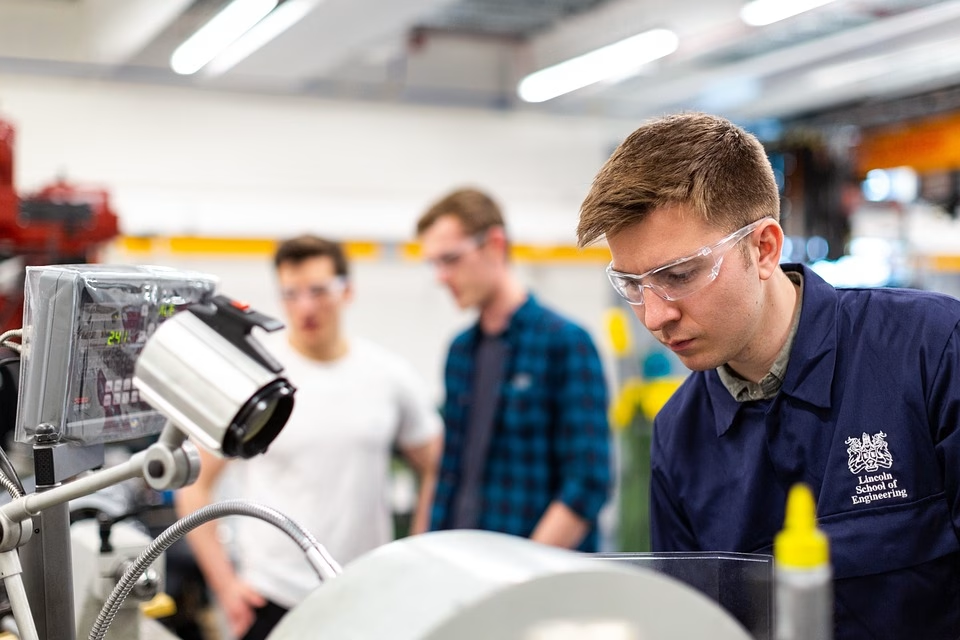Automate to Innovate: Transforming Your Small Business Operations

As we dive deeper into 2025, the landscape of artificial intelligence is undergoing transformative shifts, particularly with the rise of generative AI assistants. These advanced tools are now empowering a multitude of sectors—from small businesses to global enterprises—by automating complex tasks and enabling a new level of productivity.
The Core Development: A New Wave of Generative AI Assistants
Generative AI assistants, such as OpenAI’s latest iteration of ChatGPT, have reached unprecedented sophistication. These tools leverage deep learning models to produce human-like text, generate images, and even conduct audio conversations that are nearly indistinguishable from their human counterparts. Major players like Google AI and Microsoft are also pushing the boundaries, integrating tailored AI frameworks into their own productivity software, thus creating a competitive yet collaborative ecosystem.
Notably, some of these AI models now come equipped with multi-modal capabilities, allowing them to process and generate content across various media types. For instance, users can input a query in natural language and receive a comprehensive report that includes text, graphics, or even video content effortlessly.
Practical Applications: Streamlining Workflows and Enhancing Creativity
The applications of generative AI assistants are manifold and steadily evolving. Here are a few practical examples:
-
Content Creation: Marketers and content creators can utilize AI to generate articles, social media posts, and marketing materials, vastly reducing the time required for content generation.
-
Code Assistance: Developers can now leverage AI-driven code recommendations and bug-fixing suggestions, leading to more efficient coding practices.
-
Customer Engagement: Businesses can deploy AI chatbots to manage customer inquiries 24/7, significantly improving customer satisfaction while lowering operational costs.
- Creative Industries: Artists and designers are using AI to brainstorm and refine creative ideas, generating initial drafts of artwork and even composing music.
Benefits & Challenges: Weighing the Impact
While the advantages of generative AI assistants are evident, they come with certain challenges:
Benefits:
-
Increased Efficiency: Tasks that once required hours can now be completed in minutes, freeing up human resources for more strategic work.
-
Enhanced Creativity: By serving as collaborative partners in the creative process, AI tools can stimulate innovation and generate fresh ideas.
- Scalability: As businesses grow, AI assistants can easily scale operations without significant increases in costs.
Challenges:
-
Ethical Concerns: The potential for misuse, including deepfake technology and misinformation dissemination, raises ethical questions that need to be addressed comprehensively.
-
Job Displacement: As automation becomes more prevalent, there is a growing fear of job losses within certain industries, urging a dialogue about reskilling and upskilling.
- Regulatory Hurdles: Governments are grappling with how to regulate these technologies without stifling innovation, leading to a complex landscape of compliance and enforcement.
Industry/Market Impact: A Catalyst for AI Adoption
The rapid evolution of generative AI assistants is resonating across multiple sectors, acting as a catalyst for broader AI adoption:
-
Finance: Automated financial advising and risk assessment tools are becoming commonplace, streamlining client interactions and financial planning.
-
Healthcare: AI is assisting in diagnostic processes and patient management, showcasing significant improvements in efficiency and accuracy.
- Education: Personalized learning experiences powered by AI are redefining traditional educational approaches, catering to diverse learning needs.
These developments underscore an essential trend: as AI capabilities broaden, organizations are increasingly motivated to adopt AI solutions, creating a ripple effect across various industries.
Expert Insights: Voices from the Vanguard
In a recent statement, Dr. Emily Young, a leading researcher at Stanford’s AI lab, noted, "The integration of generative AI into everyday work processes is not merely a trend; it represents a fundamental shift in how we think about productivity and creativity."
Similarly, Satya Nadella, CEO of Microsoft, emphasized the potential of AI in democratizing technology, asserting, "Generative AI is the next frontier, offering everyone—regardless of background—the tools to innovate and collaborate."
What’s Next: The Future of AI and Automation
As we look ahead, several predictions emerge regarding the trajectory of AI and automation:
-
Enhanced Personalization: Future iterations of generative AI may offer hyper-personalized user experiences, analyzing individual preferences to cater solutions precisely.
-
Interoperability: As industries embrace diverse AI platforms, a push towards seamless integration could allow these systems to communicate and share data more effectively.
- Responsible AI: The importance of ethical AI development will become paramount, driving regulatory frameworks to ensure responsible use accompanied by transparency in AI operations.
SEO FAQs
What are the best AI tools in 2025?
In 2025, the best AI tools include advanced generative AI assistants, code repositories with AI capabilities, and AI-driven data analytics platforms tailored for industry-specific needs.
How is AI changing business automation?
AI is automating repetitive tasks, enhancing decision-making processes, and improving customer interactions, streamlining business operations significantly.
What’s new with ChatGPT and OpenAI in 2025?
OpenAI has enhanced ChatGPT to include multi-modal capabilities, enabling rich interactions that span text, audio, and visual content generation, among other features.
Which industries benefit most from AI automation?
Industries including finance, healthcare, marketing, and education are witnessing substantial benefits from AI automation, enhancing efficiency and driving innovation.
In conclusion, generative AI assistants are not just a passing trend; they represent a pivotal evolution in the workplace, heralding a new age of productivity and creativity. As businesses adapt and evolve, staying informed about these changes will be crucial for leveraging AI’s full potential.
🚀 Try Ancoia for FREE today and experience the power of business automation!
🔗 Sign up now and get a 7-day free trial



